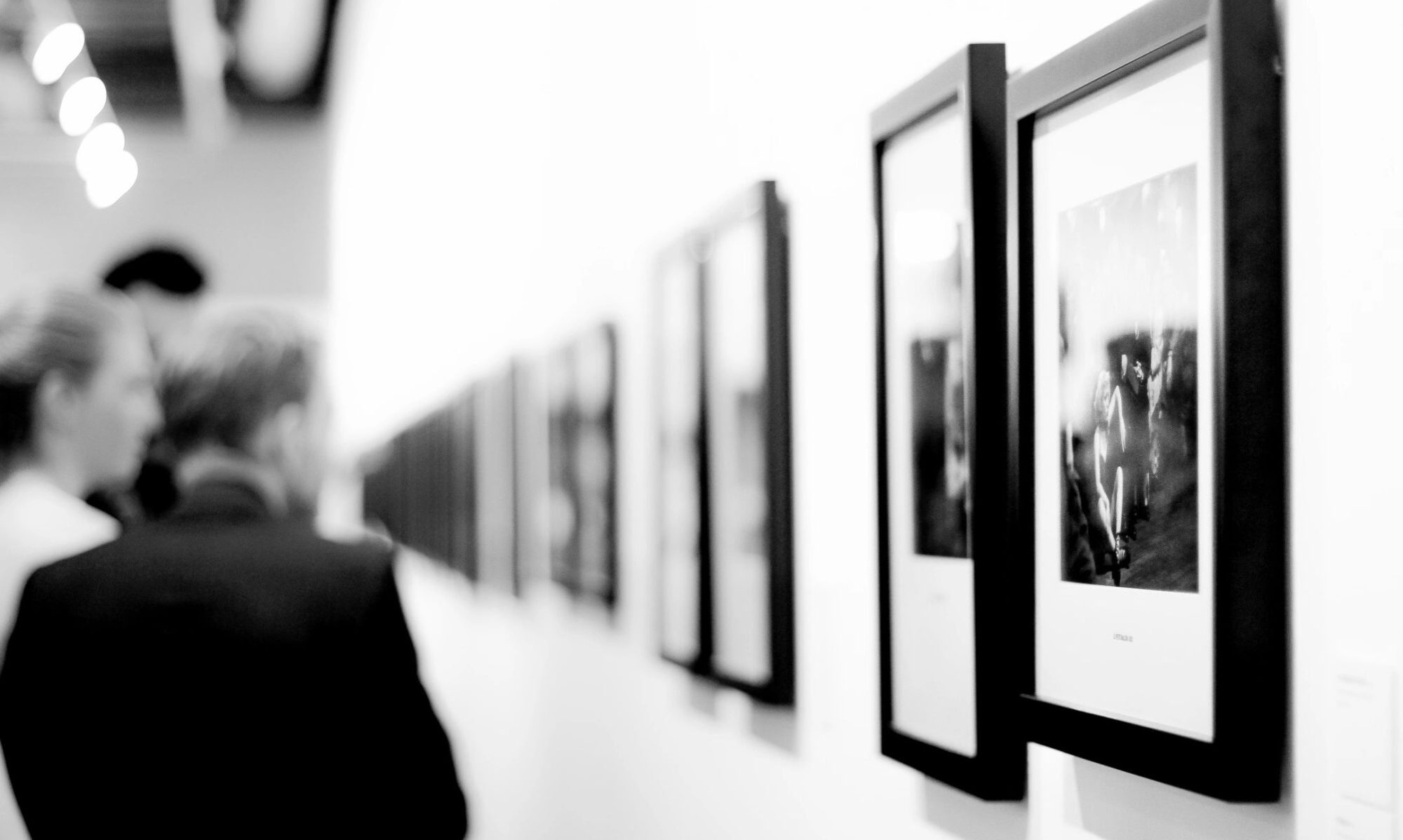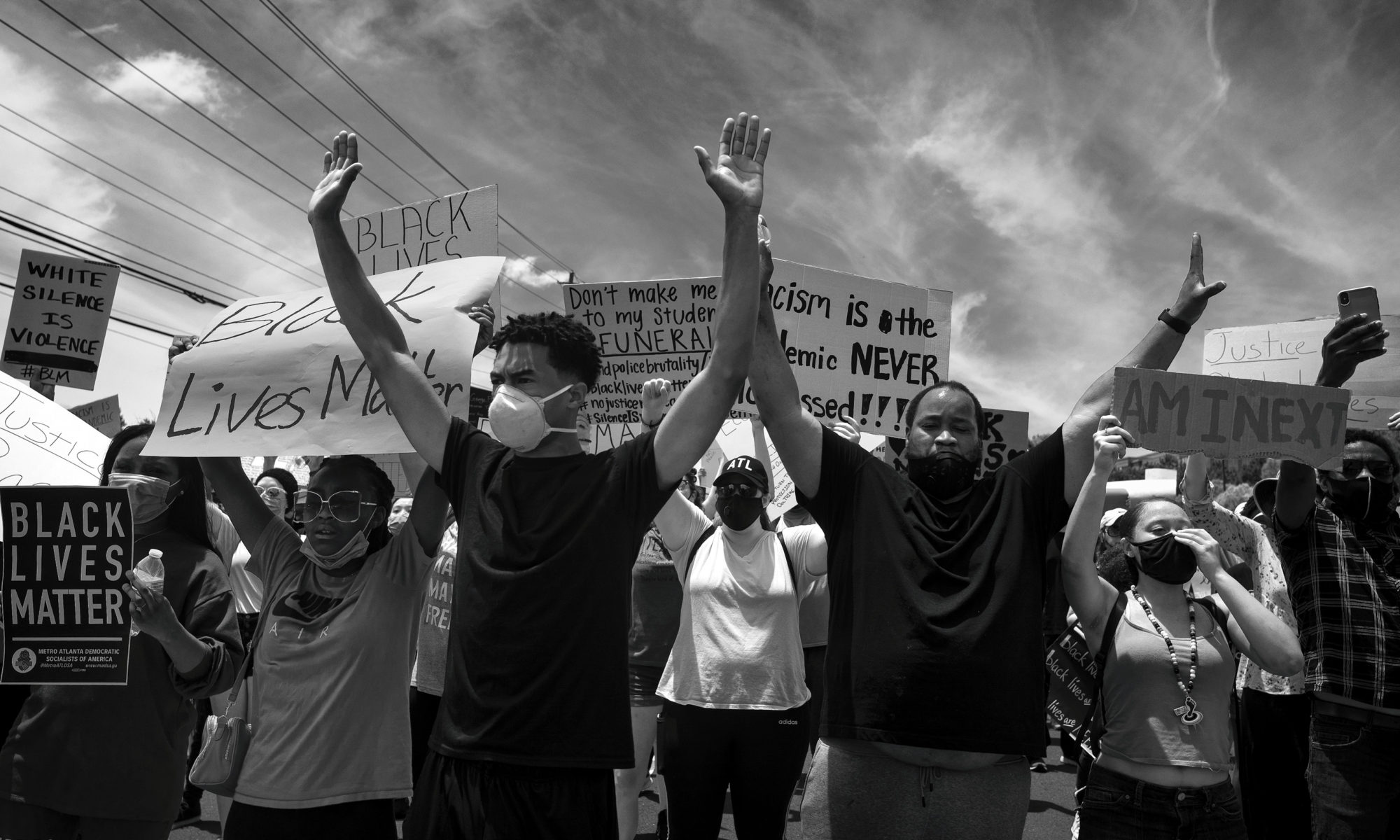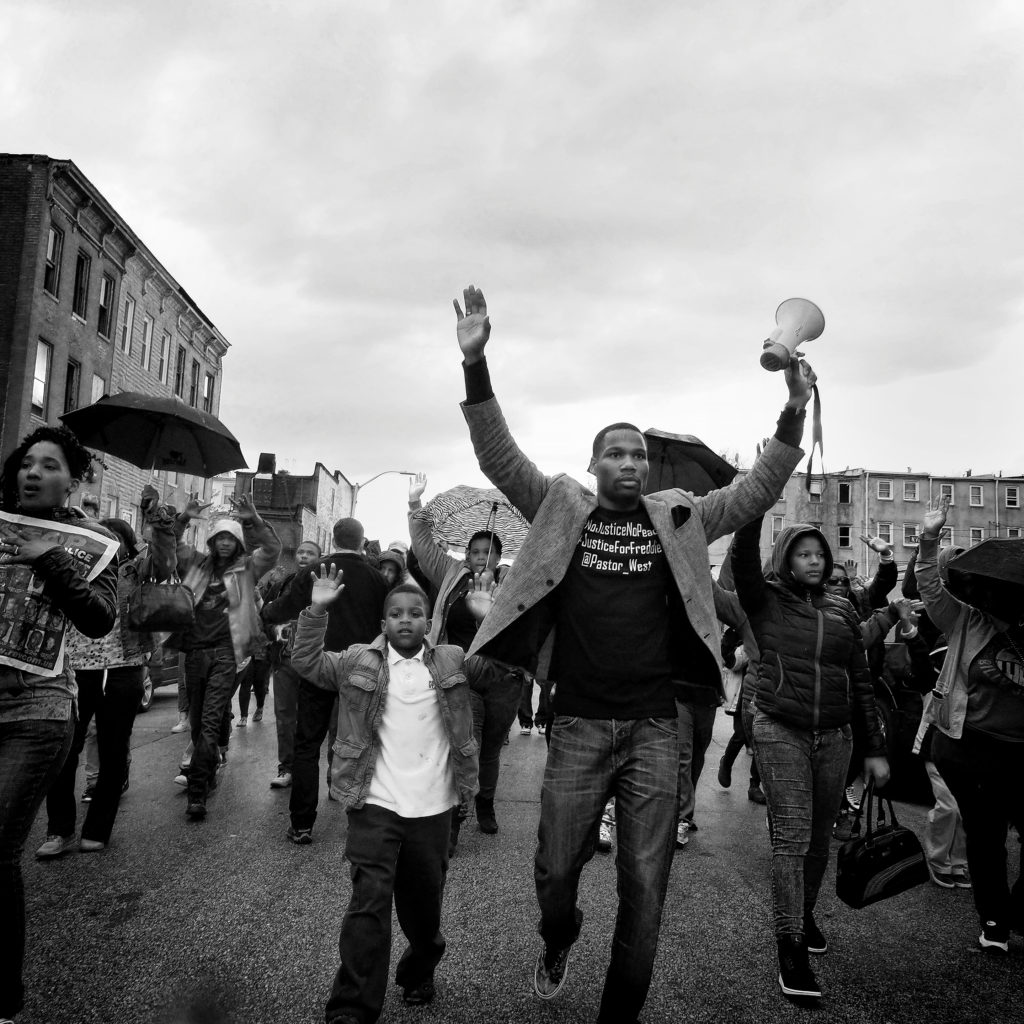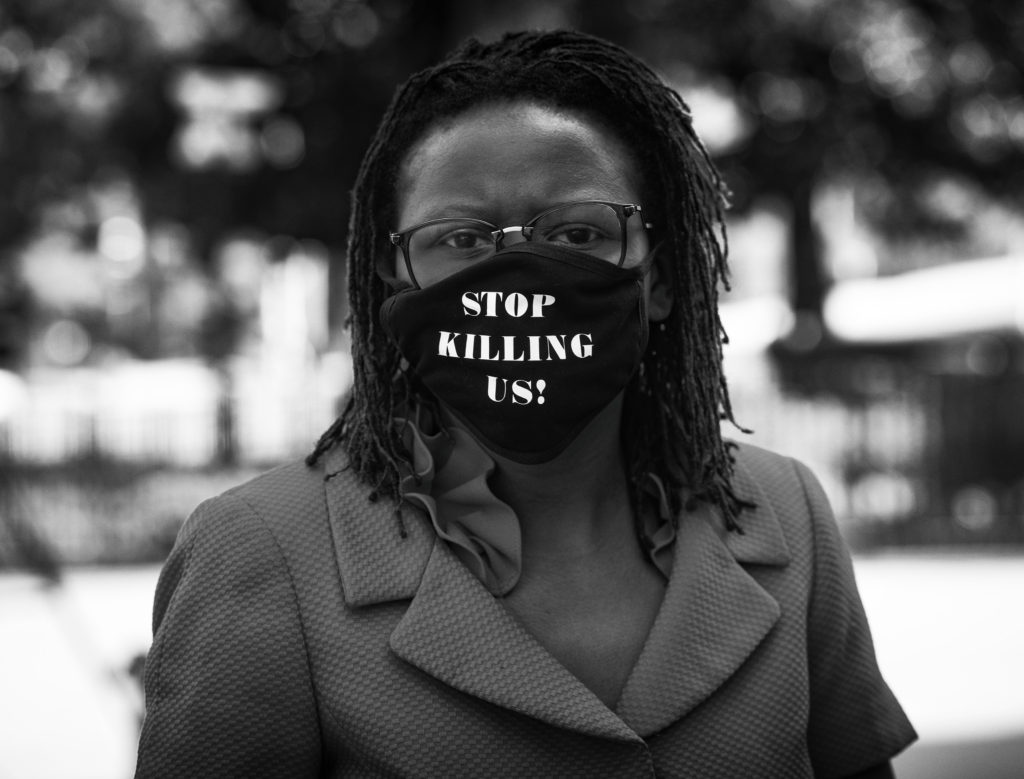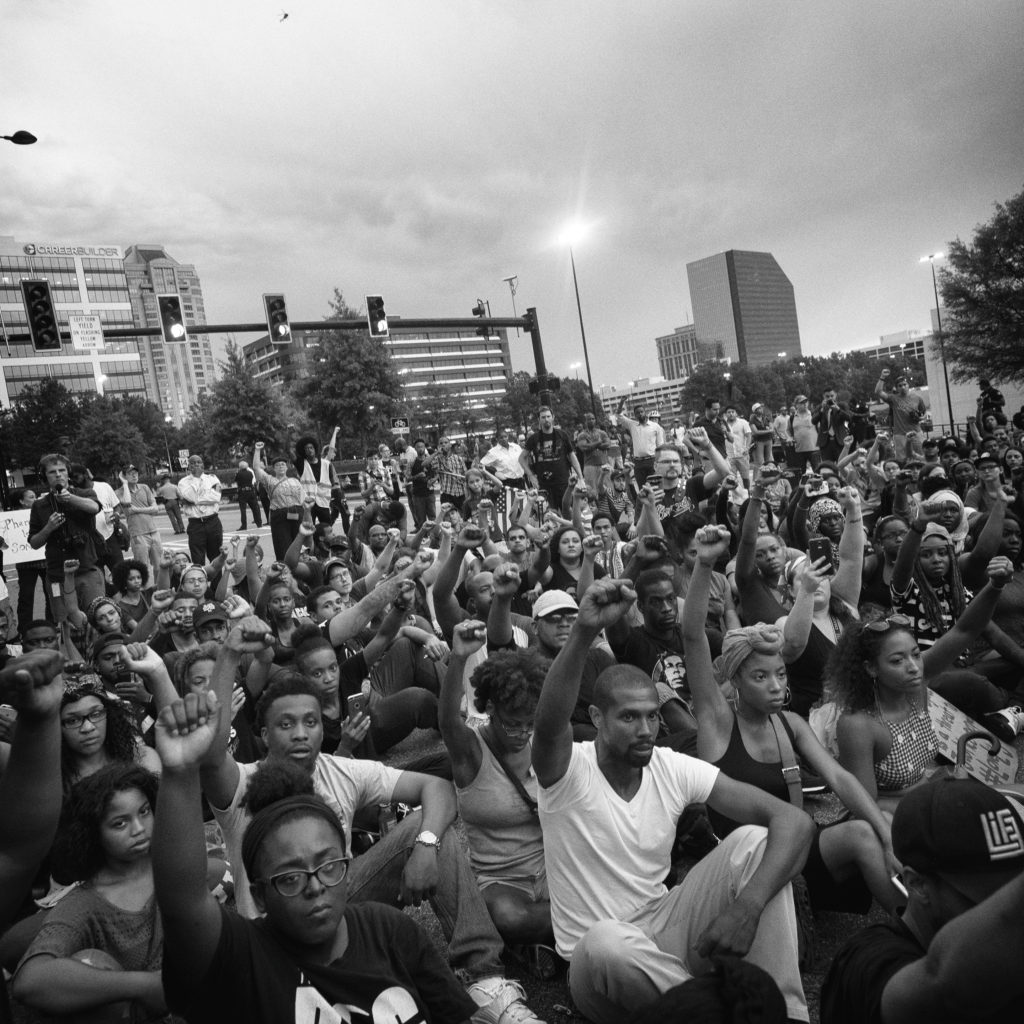To Hear and Be Heard
Sheila Pree Bright
Photographer Sheila Pree Bright documents social activism and is often described as a “cultural anthropologist.” She is widely known for her photographic series #1960Now, Young Americans, Plastic Bodies, and Suburbia. Bright earned an M.F.A. in photography from Georgia State University and received the Center Prize from the Santa Fe Center of Photography for Suburbia. Her work was featured in the documentary films Through the Lens Darkly: Black Photographers and the Emergence of a People and Election Day: Lens Across America.
Bright has exhibited nationally and abroad at venues that include the High Museum of Art, Atlanta, GA; the Smithsonian Anacostia Museum in Washington, D.C.; the Art Gallery of Hamilton, Ontario, Canada; and the Leica Gallery in New York City. Her work is held in many private and public collections including the Library of Congress, Washington D.C.; the Wadsworth Atheneum Museum of Art, Hartford, Connecticut; the Smithsonian National Museum of African American History, Washington, D.C.; the Oppenheimer Collection at the Nerman Museum of Contemporary Art, Overland, KS; the High Museum of Art, Atlanta, GA; the de Saisset Museum, Santa Clara, CA; King & Spalding, Atlanta, GA; the Museum of Contemporary Art, Cleveland, OH; Time Inc., New York, NY; FotoFest, Houston, TX; and the Sprint PCS Art Collection, Overland, KS.
Above: (Left) Protest, “All Night All Day, We’re Gonna Fight for Freddie Gray”; Baltimore, Maryland, 2015;
(Center) Women State Representatives stood in solidarity with the mothers who told their stories about their son’s death; House Bill 636 was introduced by the State Representatives, 2020
(Right) Alliance for Black Lives Protest; Atlanta, Georgia, 2020
Below: 2016, #AtlisReady and Black Lives Matter Atlanta Chapter protest shootings of Philando Castile and Alton Sterling, Atlanta, Georgia
#1960Now
From Atlanta, Ferguson and Baltimore, to Washington, D.C. and Baton Rouge, photographer Sheila Pree Bright documents civic response to police shootings and systemic inequity. She observed #BlackLivesMatter activists taking a stand against the same struggles their parents and grandparents underwent during the Civil Rights movement and the era of Jim Crow. Through photographing the living leaders of civil rights activism, Bright makes connections between present day protests and the demonstrations of the 1960s. This work inspired her book #1960Now: Photographs of Civil Rights Activists and the Black Lives Matter Protests and is the basis of her ongoing project #1960Now, first featured at the Museum of Contemporary Art Georgia. #1960Now examines race, gender and generational divides to raise awareness of millennial perspectives on civil and human rights. Bright says that her “objective is to capture images that allow us to experience those who are unheard as they contemplate or voice their reactions to ideas and issues shaping their world.” While her work is a painful reminder of the continued racism and injustice that plague us today, it is also an example of the enduring courage and conviction of citizens working to create a more perfect Union.
